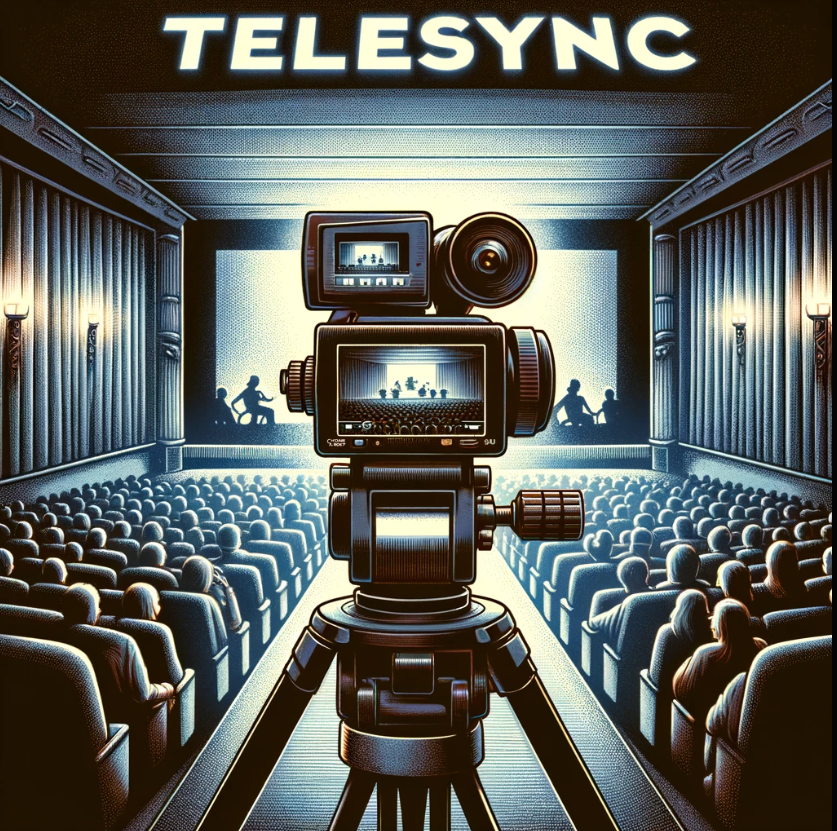What Does “TS” Mean in Movies: Telesync Explained

- Telesync, or TS, involves recording a movie directly from the cinema screen, often with professional equipment, and syncing it with external audio. This method provides an alternative viewing experience but differs significantly in quality from legal formats.
- Telesync is illegal and infringes on copyright laws. It contrasts starkly with legal viewing methods like cinema, high-quality streaming, and official DVDs, both in terms of experience and legal implications.
- While Telesync offers early access to movies and a free viewing option, it compromises on quality, is unethical, and negatively impacts the film industry. It also poses legal risks to viewers.
Movies are one of the most popular forms of entertainment worldwide. They can take us to different places in time and reality, providing us with an experience that wouldn’t have been possible otherwise. We can watch movies not just in a cinema but also online or through DVDs. But these different platforms can have the movies in various formats, like HD, UHD, SD, CAMRip or TS.
In this article, we are going to focus specifically on TS, what it means and how it is better or worse as compared to other formats.
Table of Contents
What Does TS Mean in Movies?
TS stands for Telesync, a method used in the film industry to capture and distribute movies. Unlike other formats, Telesync involves recording the film directly from the projection booth, often using a professional camera setup. The audio is captured from a secondary source, either an external microphone or from a headphone jack in the disabled person’s seat. The result is a recording that provides a great experience.

Is Telesync Legal?
To be straightforward, Telesync is not legal. Recording movies in this manner without proper authorization violates the intellectual property rights of the movie’s producers, distributors, and studios. Telesync is also a form of theft. How? Because it deprives the filmmakers of the revenue that they would have earned from the legitimate sales of the movie.
This can lead to legal consequences and Appuals strictly discourages watching Telesync movies.

READ MORE: How to Stream Movies for Free on Redbox ➜
How is Telesync Different From Other Methods of Watching Movies?
Understanding Telesync involves comparing it to other methods of watching films. Unlike high-quality formats like Blu-ray or digital streaming, Telesync introduces an element of raw, unedited cinema directly from the theater, providing a different viewing experience.
Here’s how it fares against other ways of watching films:
- Cinema: Cinemas are the intended way of watching a movie because they provide the best experience in terms of audio and video. Since Telesync is a recording of a movie in the cinema, the difference between the two is night and day.
- Streaming: Different streaming services such as Amazon Prime, Disney+ and Netflix also provide movies in high quality, and since these are either subscription-based or pay-per-view, the quality is top-notch.

Netflix - CAM, CAMRip, and Other Pirated Formats: Telesync is superior in terms of quality to CAM or CAMRip. Both the audio and video in CAM format are captured using either a camcorder or a digital camera of low quality. The audio also has background noises like people whispering or ringing smartphones, while the video can have shadows of people.

A CAMRip being recorded | Julien Silvano
READ MORE: Here is What TV-MA Means on Netflix – Adult Content Breakdown ➜
What Are The Pros And Cons of Telesync?
Although Telesync is illegal, people still like to weigh the pros and cons before they make a decision to watch a movie in Telesync quality. These have been summarized here:

Pros:
- Telesync allows people to watch the movie in good quality shortly after it’s released.
- People don’t have to go to cinemas or pay to watch the movie. Instead, they could watch it online for free.
- All those people who don’t like to go out in public places, especially after COVID, can watch movies in TS as an alternative to cinemas.
- In countries where a certain movie isn’t released, either because of censorship or copyright problems, people can watch movies in this format.
Cons:
- It is an illegal way of watching movies and, thus, can have legal consequences, especially depending on where you reside. Some countries have very strict copyright infringement laws.
- The quality of TS can never be as good as the original cinema, DVD or Blu-ray experience. Thus people opting for this method have to compromise on the quality.
- It’s unethical, immoral and affects the movie industry in a negative way. The people who put effort into creating the movie are affected because less revenue is generated due to movie piracy.
Are There Any Risks Associated With Downloading Telesync Movies?
If you are involved in the unauthorized distribution and download of copyrighted content, you face serious legal and ethical implications. Besides, Telesync movies are often uploaded to untrustworthy or illegal websites (like torrent websites), which may contain malicious links, pop-ups, or non-consensual downloads that can infect the viewers’ computers or phones with malware.

Should You Watch Movies in Telesync?
While there may be a conceivable argument for individuals in certain countries where the options for watching movies are limited, the prevailing consensus is that you should NOT watch movies in Telesync format. It is advisable, instead, to prioritize authorized platforms for a legal, ethical, and superior cinematic experience.
READ MORE: How to Find Any Clothes Seen in A Movie or TV Show ➜
Final Thoughts
Combating piracy has been a hard thing to do for the entertainment industry. Various measures, like stricter copyright laws, the development of easy-to-access and affordable streaming platforms, and anti-piracy campaigns, are a step in the right direction. If you have more questions about Telesync in movies, drop them below so we can help you out.
FAQs
Besides having HD video quality, there’s practically no difference between HDTS and TS movie formats.
Usually, movies in CAM quality have been recorded by an individual with a handheld camera in a cinema full of people. So, the recording is cluttered with not just background noises but also with people moving here and there.
The DVD rental market has been shrinking rapidly, especially as online streaming platforms have gained popularity over the years. However, there are still people who prefer renting DVDs because of nostalgia, availability, or personal preference.





